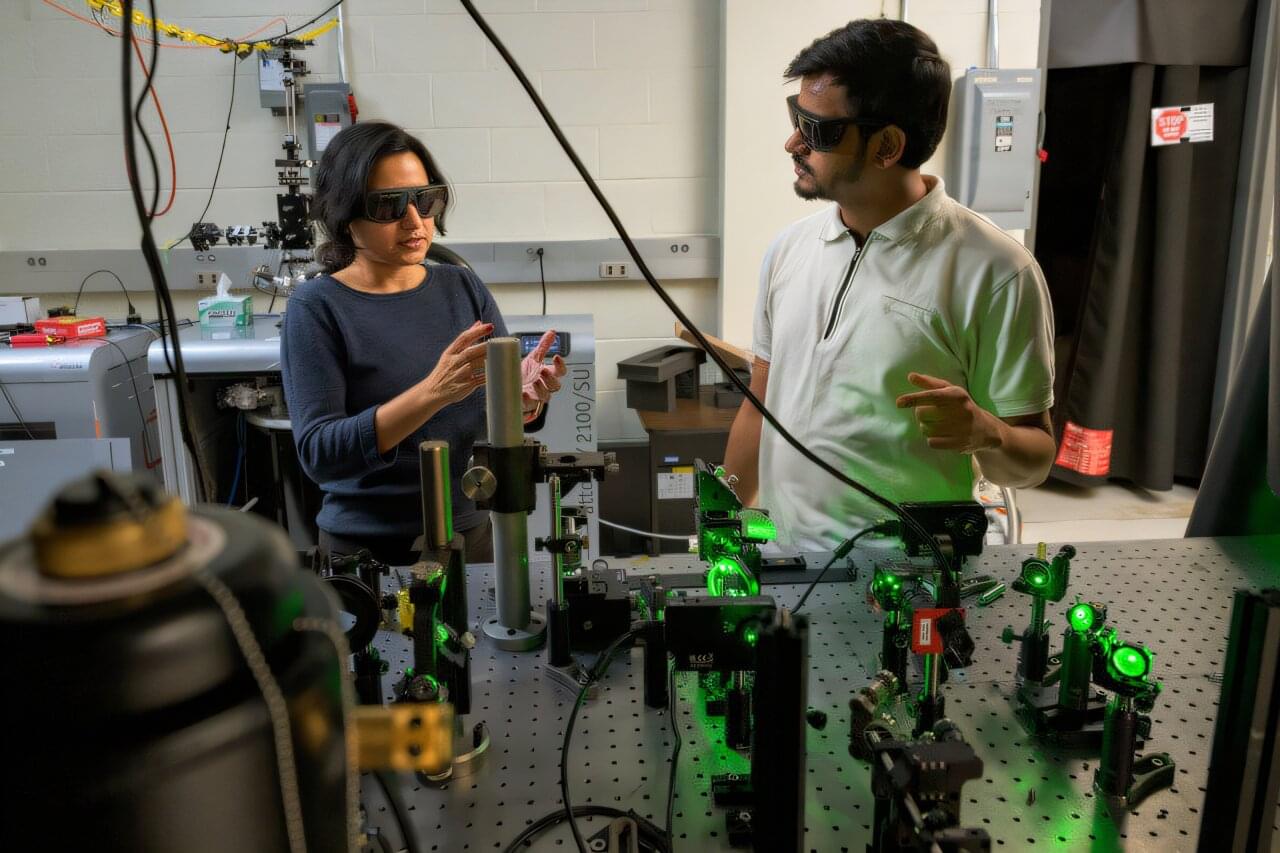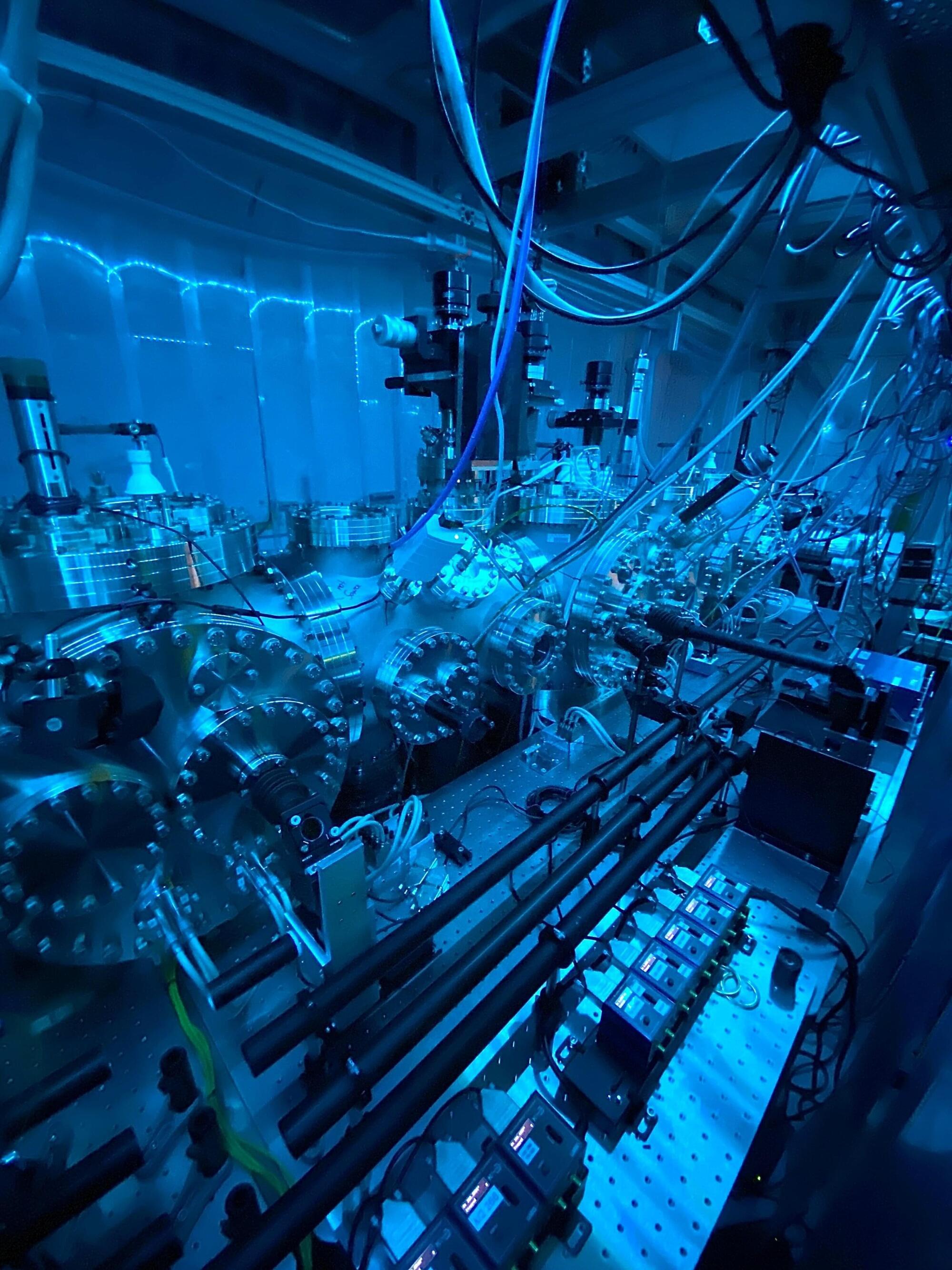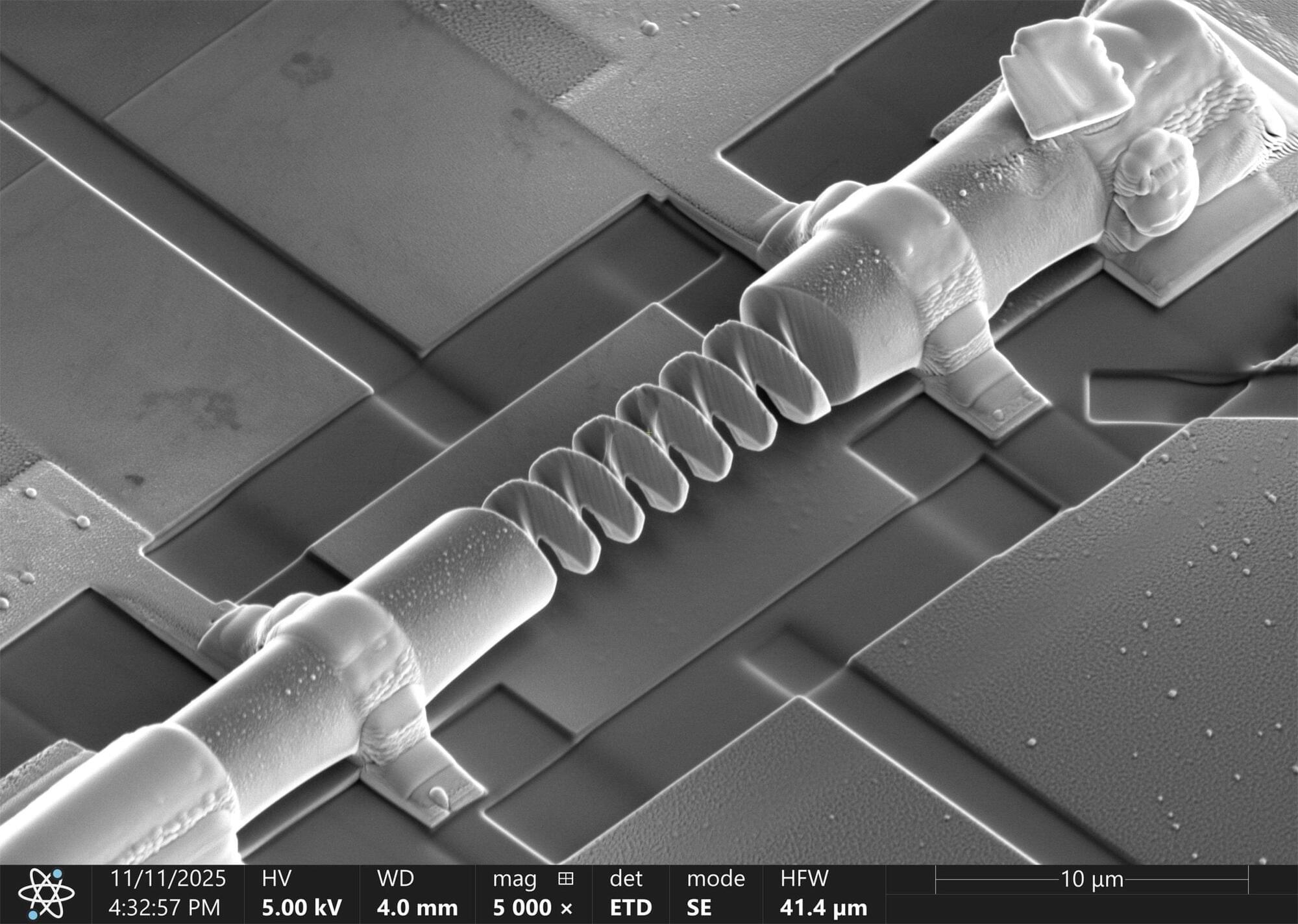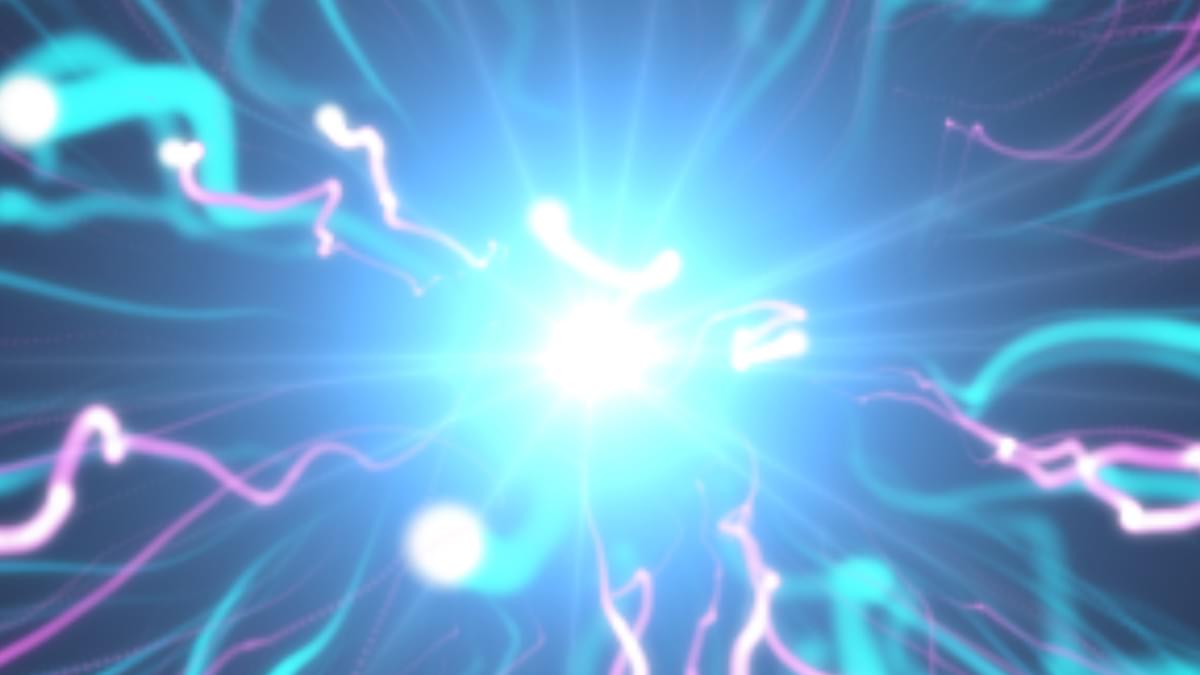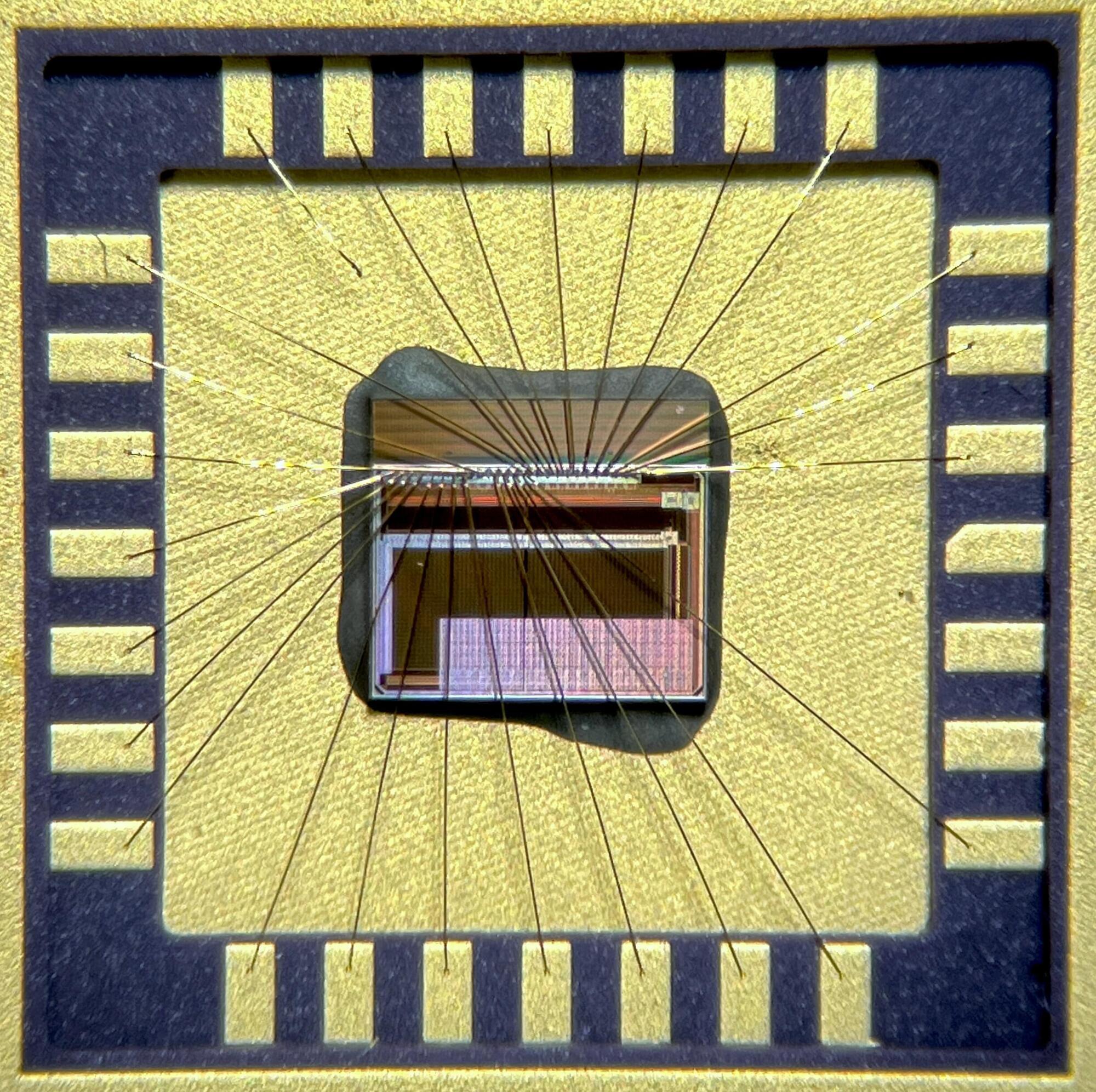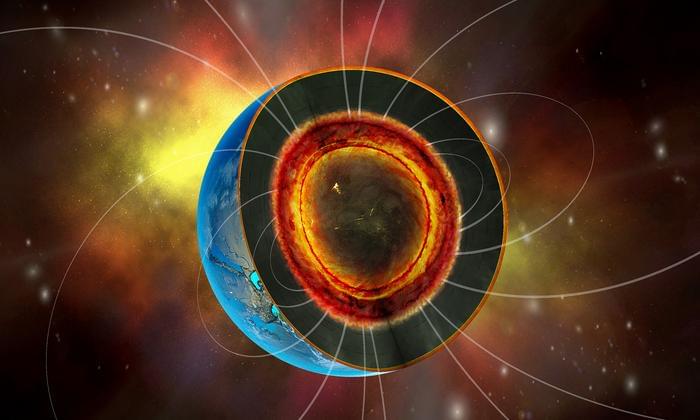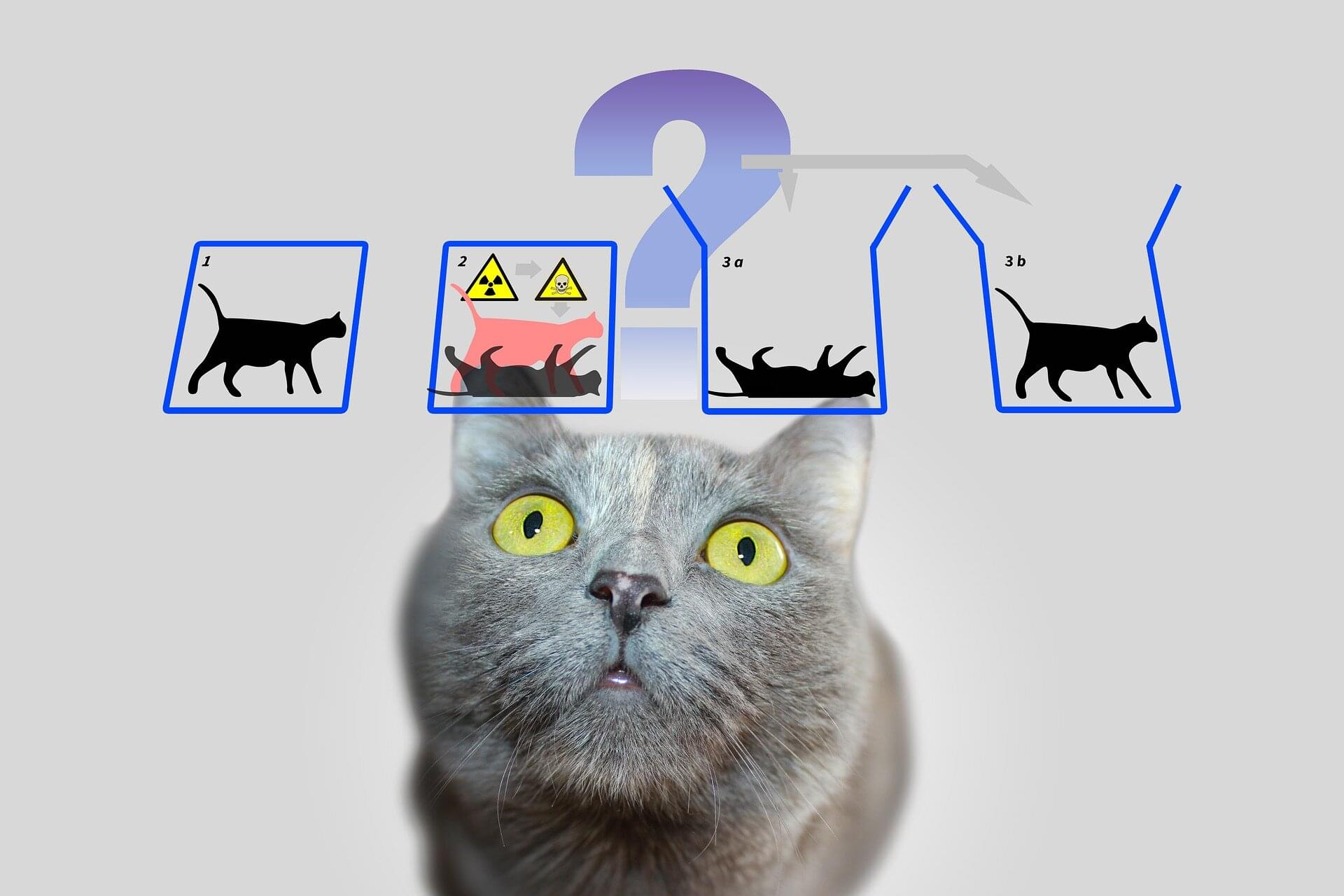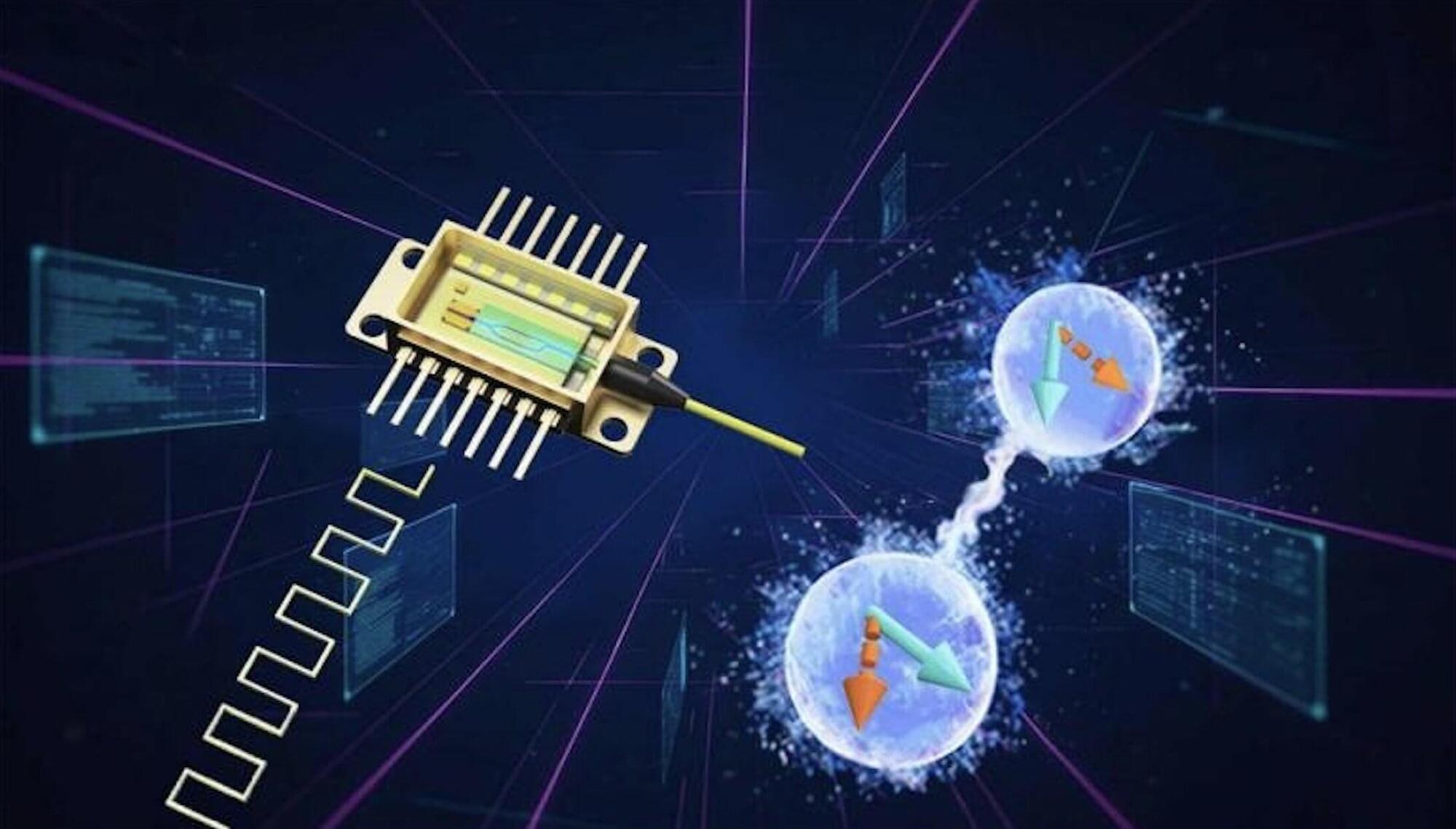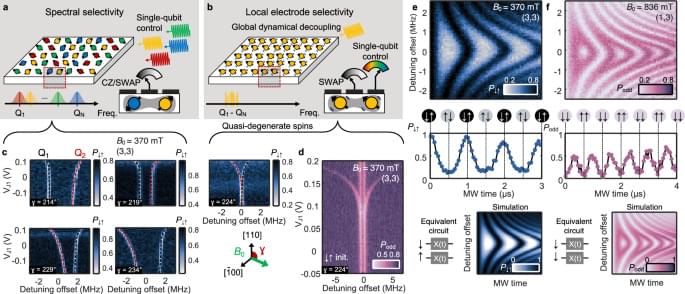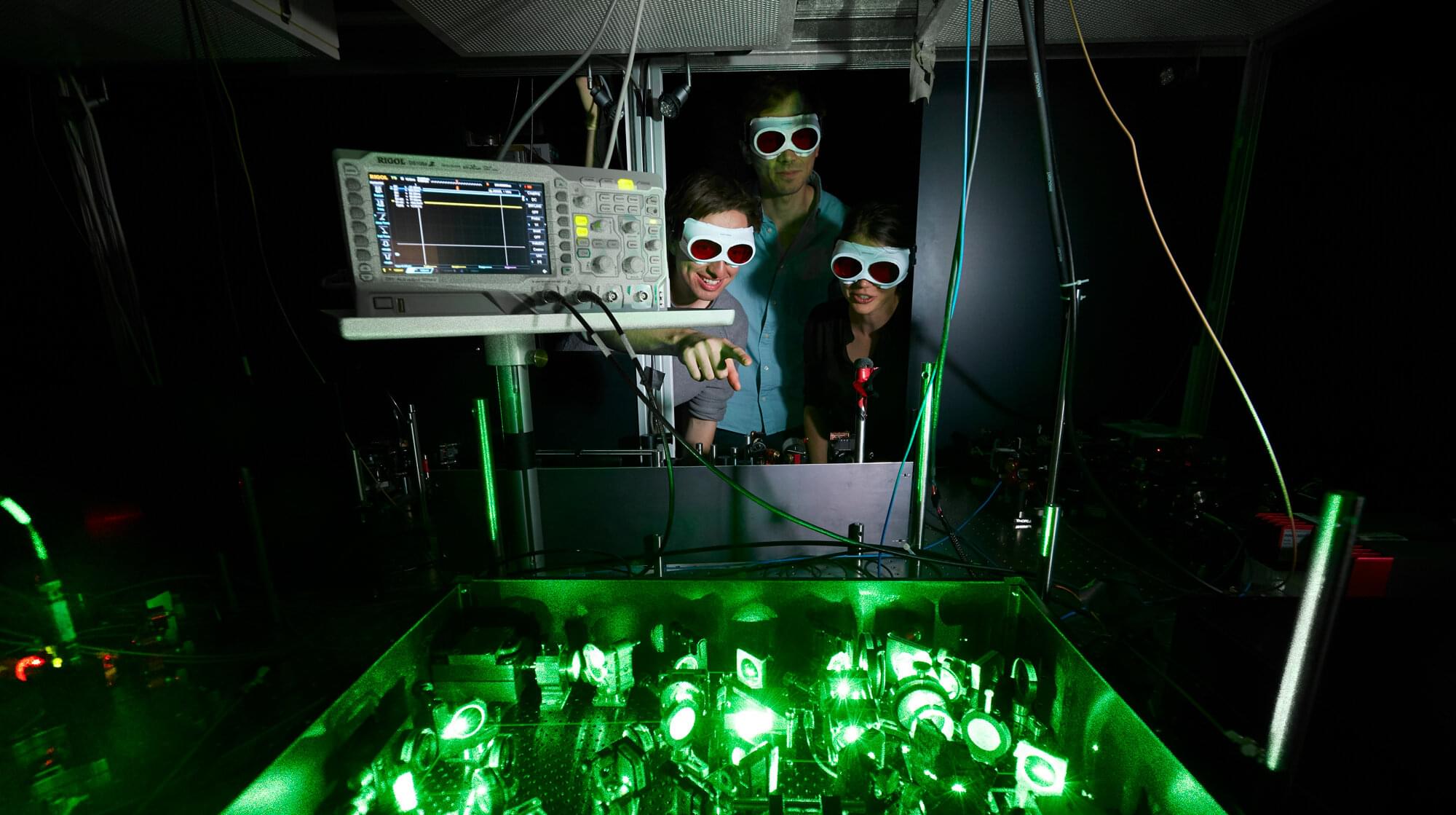Imagine computer hardware that is blazing fast and stores more data in less space. That’s the promise of antiferromagnets, magnetic materials that do not interfere with each other and can switch states at high speed, opening the door to advanced computing and quantum applications.
Magnetism comes from unpaired electrons, tiny particles that orbit an atom’s nucleus. Each electron has a property called spin, which can point up or down. In standard ferromagnets, the atomic spins point in the same direction, creating a strong magnetic field. In antiferromagnets, neighboring spins point in opposite directions, canceling each other out and yielding no net magnetism.
Flipping individual spins in an antiferromagnet requires very little movement of magnetization, which allows ultrafast processing. Antiferromagnets can switch states trillions of times per second, compared with billions for ferromagnets. With net zero magnetism, antiferromagnets can be placed very close together without repelling or attracting each other, allowing more data to be stored in a small space.
